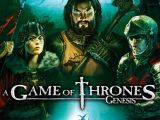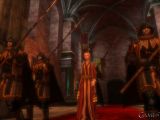I devoured the novels in the A Song of Ice and Fire series, written by George R.R. Martin, as soon as I saw the first trailer posted by HBO for the Game of Thrones series that it was creating based on them.
I know I was late to the party, but there are so many good books to read that it’s alarmingly easy for a great franchise to slip through the cracks.
Once I became addicted to the series, I quickly moved to read the short stories set in the same universe, and as a game lover, I quickly began playing the board game based on it and looked for video games that manage to capture its unique mix of politics, intrigue, warfare, and fantasy.
Some universes resist video game adaptations
A Game of Thrones: Genesis was delivered in 2011 by Cyanide and aimed to use the world of Westeros to power an initially traditionally looking strategy title.
The development team clearly knew A Song of Ice and Fire well and tried to emulate the power of intrigue, the way characters matter, and the way each noble house tries to use power in different ways.
Some systems in Genesis were pretty cool but they failed to combine in interesting ways and the video game had some mechanical problems as well.
I wanted to love this game because it offered more Game of Thrones, but I was unable to.
Cyanide tried again one year later with an action role-playing title that introduced two new characters called Alester Sarwyck, a Red Priest, and Mors Westford, a skinchanger.
The gameplay was solid if unsurprising, but the story created by the developers managed to tick all the themes George R.R. Martin himself introduced in his novels.
The story is cleverly threaded through the events fans already know and the two main characters have clear personalities.
The four potential endings are also perfectly suited to the Game of Thrones world.
Free-to-play and episodic structure is the future for A Song of Ice and Fire
The George R.R. Martin franchise has then been adapted by Disruptor Beam as a free-to-play and browser-based title called Game of Thrones: Ascent, which allows gamers to become a noble in Westeros and then get involved in the affairs of the Seven Kingdoms and the Free Cities of Essos.
I have been playing the game since it was launched, and even as it has moved away from the cannon of the book series, it has managed to constantly introduce new mechanics that keep it interesting, including a complex Alliance versus Alliance battle system, which is gripping even one year after it first appeared.
Ascent requires time and commitment and there are subtle pushes to spend real world money on it, but the game manages to capture the struggle for power of the Game of Thrones concept as players themselves fight and betray one another.
Now Telltale Games has delivered its own take on the world of A Song of Ice and Fire, which uses its own classic episodic format, and initial impressions show that there’s some quality to be found in the experience focused on House Forrester and its struggles.
But both titles are at the moment niche offerings and Game of Thrones is worthy of something more.
Unfortunately, the universe is much too complex to be translated into video game mechanics and the only genre capable of recreating the classic moments from the books is probably the MMO, which might be unattractive for those who actually like the world created by George R.R. Martin.

 14 DAY TRIAL //
14 DAY TRIAL // 





